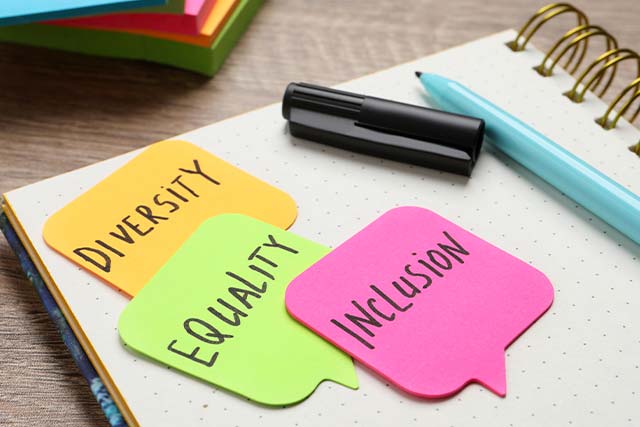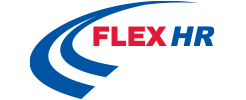Diversity, Equity, and Inclusion (DEI) has become resolute to employers, but what about disabled persons and their accessibility (or DEIA)? DEIA initiatives need to be outlined within a company to value all individuals in a company, giving them the chance to show their strengths, but also ensuring they are given the proper tools they need to succeed
American employees with disabilities are crucial to our workplace and economy, and thus it’s more important than ever to emphasize equal opportunities for all people. Flex HR has seen and fortified HR departments to include major adjustments to ensure policies are in place to allow for the advancement of diversity, equity, inclusion, and accessibility (DEIA) in the workplace.
The Americans With Disabilities Act (ADA) defines Accessibility as “the design of products, devices, services, vehicles, or environments so as to be usable by people with disabilities.” The ADA defends the rights of employees with a disability by enforcing businesses to comply, offering reasonable accommodations to allow that employee to work for a job they are qualified to do. But what exactly are considered reasonable accommodations and how can businesses welcome, and best practice these parameters?
HR to Ensure Company Inclusion Policies
Few organizations put in the appropriate plan of action for hiring people with disabilities. This job falls in the hands of Human Resources to encourage employers to validate that their company handbook is current to include policies and best practices for disabled employees to be given the capabilities needed to fully participate at work.
The increase of employees working remotely, has forced businesses to focus on disability inclusivity to drive motivation and retention within their company. HR professionals should develop tactics to improve office or at home infrastructures to accommodate employees with disabilities to better their working environment. HR leaders may have these policies in place and should take the time to review procedures annually to make any necessary modifications.


Supporting Disabled Employees in the Workplace
Creating an equal, unbiased, diverse working conditions is just the start to support those with disabilities. However, improving accessibility in the workplace is really what is critical for a disabled employee to flourish. Reasonable accommodations are often nominal in cost yet provide a solution for the employee that needs a modification to complete their job.
Providing Accessible Accommodations
Disabilities come in a variety of forms and therefore changes will need to be made to enable an employee to fulfil their work duties. The accessibility spectrum has a wide range of solutions and there aren’t always easy answers. For something to be accessible, someone needs to be able to achieve a task without encountering an issue or a barrier. Accessibility often requires a specialist or an HR consultant who can help with accommodations.
Some easy changes an organization can make is to provide access to ramps, parking, electronic door openers for someone with a physical disability at a building. Perhaps an ergonomically correct chair to help an employee with severe back problems, or keyboard accessories to ease another employee’s carpel tunnel issues. Other obliging tools that are adaptive to incorporate into an employee’s day to day function is a screen reader for websites or alternative text for images for a person with vision issues, or closed captioning within videos for people with hearing problems. Flex HR provides a consultant to help advise on accessibility in the workplace.
Ways To Support Employees With Disabilities
- Create a workplace accessibility checklist
- Use blind hiring techniques in your recruiting process
- Design a benefits package that supports employees with disabilities
- Create a safe and inclusive work environment
- Provide training to educate all your employees
- Budget for accommodations such as new furniture, hardware, and software
These provisions create a long-lasting culture of acceptance. It’s imperative that any employees with a disability feel safe and supported at their place of work. Embracing the differences of those with visible, or invisible, disabilities bring unique talent assets into an organization. Developing an inclusive work force is also essential to represent the customers a company serves. Moreover, it allows for more creative and innovative thinking for career growth.
Validating all employees feel welcomed, appreciated, comfortable, and valued for their differences in a supportive work environment, is key to disability inclusion.
Flex HR will help outline and define ways to support disabled employees which will lead to a more inclusive workplace.
